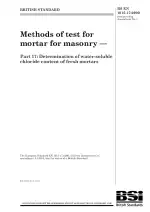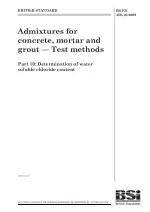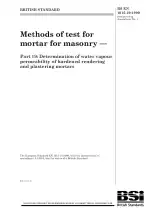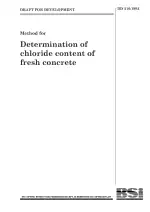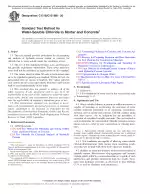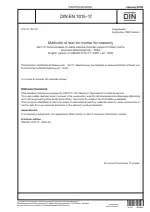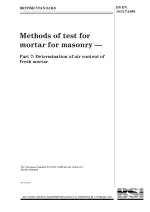BS EN 1015-17:2000 PDF Download
Standard EN SampleMethods of Test for Mortar for Masonry: Determination of Water-Soluble Chloride Content of Fresh Mortars
Also Known As:
BS EN 1015-17:2000 is a standard that provides a method for testing the water-soluble chloride content of fresh mortars. The purpose of this test is to determine the amount of dissolved chloride present in the mortar, which is important as high chloride levels can lead to corrosion of embedded metals and ultimately reduce the durability and structural integrity of masonry walls.
The testing method involves creating an aqueous extract of the mortar sample. This extract is then treated with silver nitrate, which reacts with any chloride ions present in the sample to form silver chloride, a white precipitate. The excess silver nitrate is then titrated to determine the amount of chloride ions in the mortar.
By measuring the water-soluble chloride content, this standard allows for the assessment of the chloride concentration in fresh mortars, helping to ensure that the mortar composition meets the required standards for chloride content. This information is essential for masonry construction projects to ensure the long-term durability and performance of the structures.
| Descriptors | Mortars, Cement and concrete technology, Masonry cement, Construction materials, Masonry work, Chemical analysis and testing, Determination of content, Chlorides, Aqueous extraction methods |
| ICS Codes | 91.100.10 - Cement. Gypsum. Lime. Mortar |
| Language(s) | English |
| ISBN | 0 580 36383 X |
| File Size | 768.0 KB |

